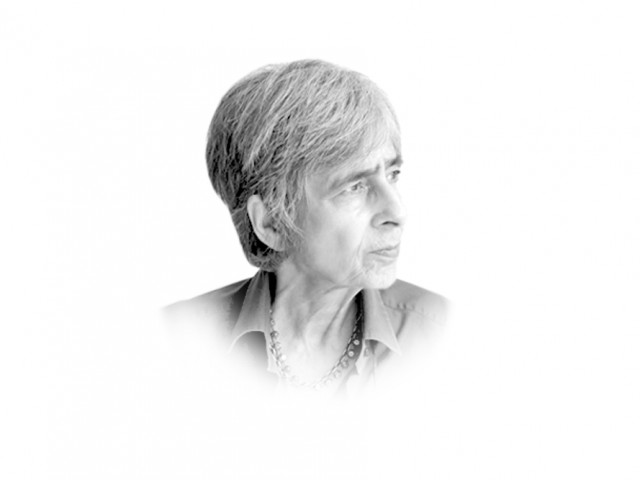Uniformed flunkies
Functioning head of government should not have army men on his staff, Gilani should not follow ZAB’s wrong precedent.

One is Israel, where the prime minister’s military secretary plays one of the most influential roles in Israel’s national security policy, being a member of the military staff and privy to every move of the intelligence services. He is a senior military adviser to the prime minister on national security issues. He is far from a personal flunky — or social secretary — put in place to keep a watchful eye on prime ministerial doings.
Another is Bangladesh which, probably for the same reasons as Pakistan, wishes its prime minister to be kept under the thumb of the military so that his or her every move is known and monitored.
India, of course, does not have such a post and neither did Pakistan prior to the advent of Zulfikar Ali Bhutto. When in 1973 he transformed himself from president to prime minister, he initiated the practice of having military personnel pander to the needs of the head of government. As president, he had enjoyed the military trappings of that office and saw no reason why he should give them up. So he arrogated unto himself, as prime minister, a full military staff. Wrong in many ways. After all, in 1971 the Pakistan Army lay shattered and if at any time in the history of the country a civilian government had the opportunity to relegate the military to its proper place in the scheme of things, it was then. But rather than restructure and professionalise the armed forces, ZAB rehabilitated the army, restoring it to its prominent position and ironically, eventually succeeding in militarising civilian rule.
The wrong and bad habit of having the prime minister surrounded by serving military officers continued on through the 1980s and 1990s, with Junejo, Benazir Bhutto and Nawaz Sharif, all becoming victims of what is known as the establishment.
In 2008, after Yousaf Raza Gilani was given his vote of confidence, he ordered that within two weeks, all serving military officers occupying civilian posts should return to their respective barracks, that is, all others, than those posted as members of his personal staff. Why? Why were they retained? The president and governors who are supposed to be merely ceremonial functionaries are entitled to military personnel to keep them on the straight and narrow. But the functioning head of government, according to tradition, should not have military personnel on his staff and Gilani should not have followed ZAB’s wrong precedent — and the same goes for his daughter and the Raiwind Mian.
According to a press report of 2008, Gilani inherited from previous prime ministers nine serving military officers as his personal staff — to snoop and report back to their respective bosses on prime ministerial moves and intentions.
Topping them all is the military secretary whose main function is to deal with his appointments — a diary keeper. This is ridiculous; a civilian is surely capable of fulfilling this somewhat menial task. The military secretary has a deputy, even more ridiculous. Then there is a uniformed director of security, one general staff officer, a personal physician also apparently uniformed, a security officer and three ADCs, one from each of the three services whose main task seems to be to lurk behind the prime ministerial shoulder at all official functions.
In light of the civil-military relations as they now stand, blowing hot and cold, something needs to be done by someone to ensure that no future prime minister is entitled to military flunkies assigned to be used as personal staff or put in place to keep tabs on him or her.
Published in The Express Tribune, February 11th, 2012.














COMMENTS
Comments are moderated and generally will be posted if they are on-topic and not abusive.
For more information, please see our Comments FAQ